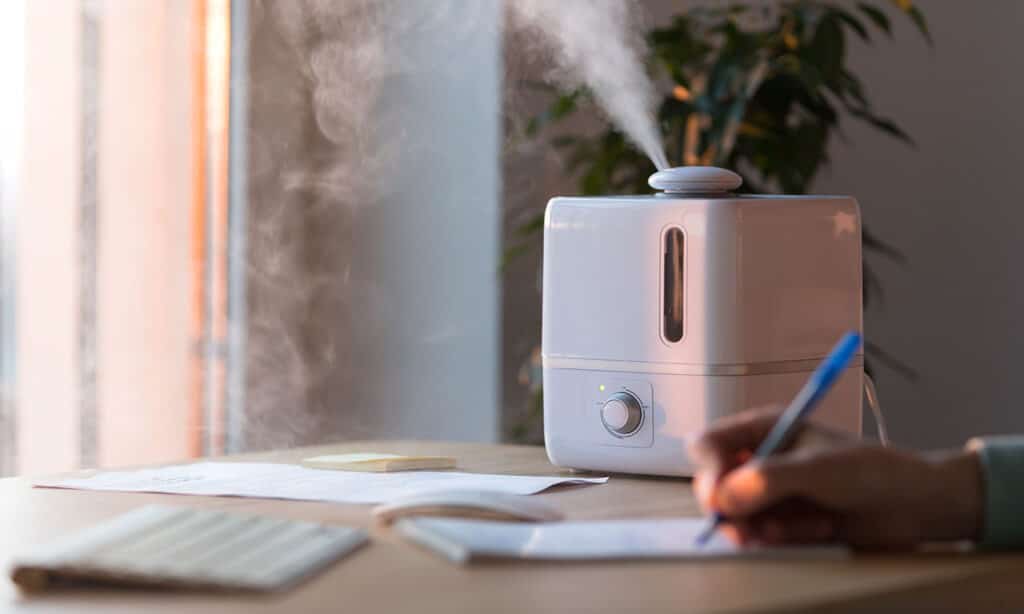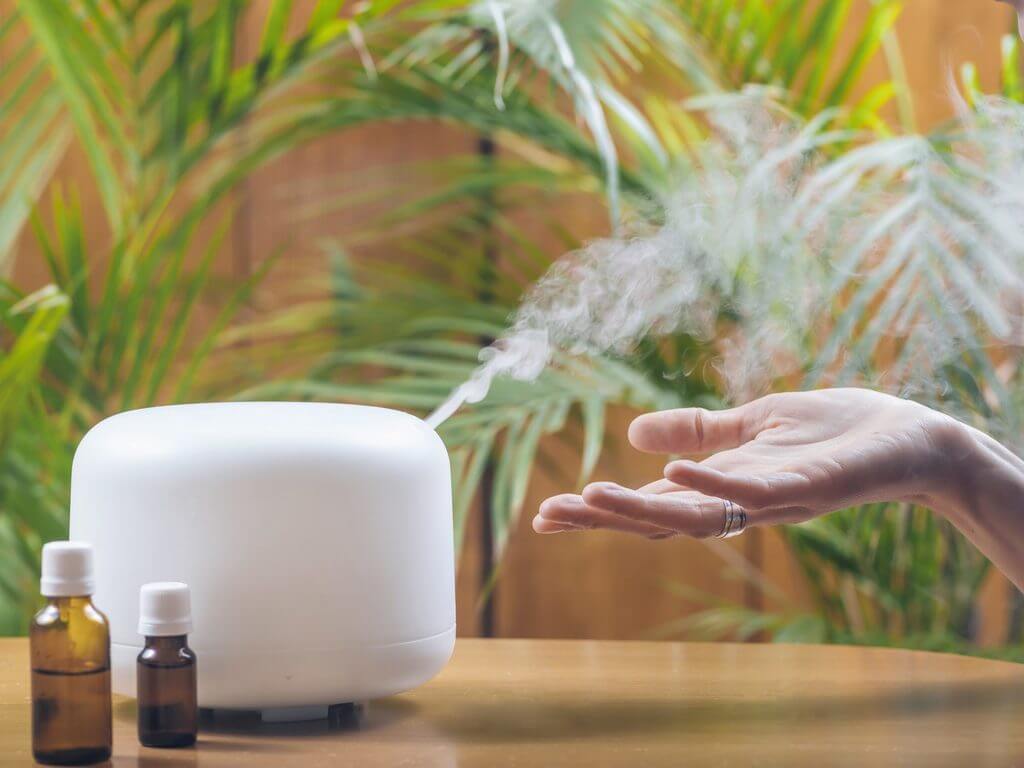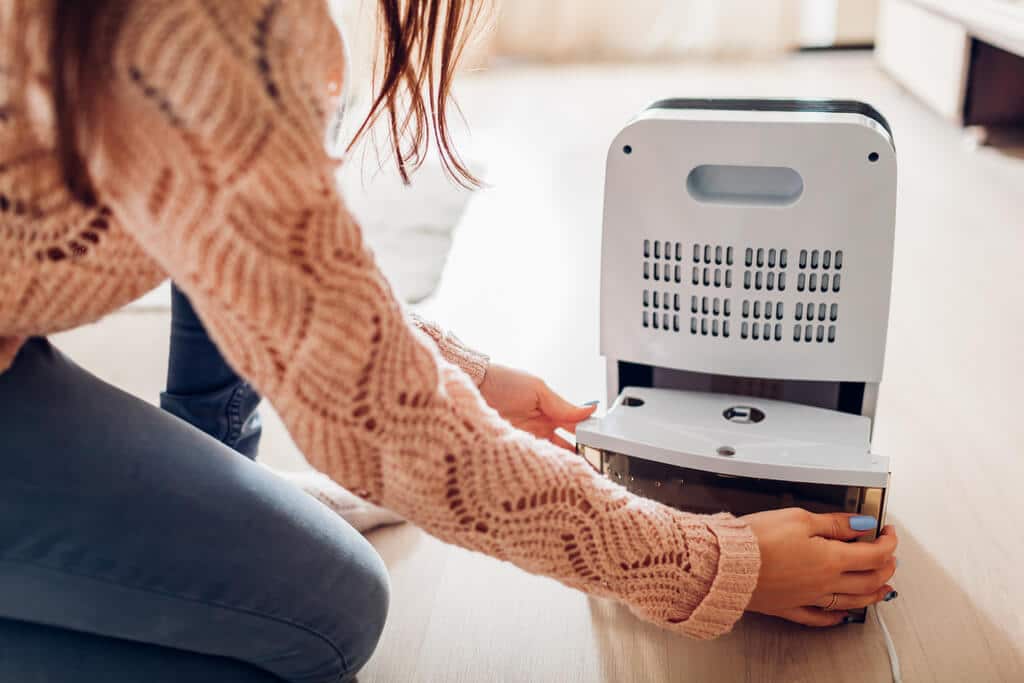During the summer or warmer periods, the air becomes much more humid as it retains more moisture. However, as the weather gets colder the opposite is true. This may not seem such a big problem but too much of it can lead to health problems. So, here we will talk about the benefits and risks of using a humidifier.
One way to improve the overall air quality as far as moisture is concerned is to use a humidifier. As far as health goes, humidifier therapy has not only a strong following but also proven benefits in helping people with a number of symptoms, including those from colds and flu.
There are many humidifiers on the market and they come in different sizes and types to suit different needs. Here is a brief explanation of how a humidifier could help you and also a look to see if there are any dangers to these devices.
What Are Humidifiers?

If you are unaware of what a humidifier is then basically they are devices that turn water into steam which then adds moisture to dry air. Humidifiers can come in many types and these will produce moisture in different ways but the result is basically the same.
Some types are designed to work in large rooms, some can be wheeled from one area to another, and some are small, portable devices that are suitable for smaller areas. And, when you are looking at gadgets you can use on a daily basis then a humidifier may appear on that list. At least, when the weather is such that the air is drier than normal.
What Are the Different Types of Humidifiers?
Some people only want to use a humidifier occasionally and in a small room, and others want to humidify their entire home. There are ones designed for children’s rooms, ones just for traveling and for use in hotels, and ones specifically designed to combat eczema and psoriasis.
If you wanted to humidify your home then a central humidifier would be the choice as these are installed as part of the general heating and air conditioning systems. Console humidifiers are large and can be wheeled from room to room and are also good for large areas.
When it comes to the different methods that humidifier manufacturers employ then there are a few types available:
- Impeller humidifiers – use a rotating disk to emit a cooling mist
- Evaporators – blow air through wet material such as a filter
- Steam vaporizers – as the name implies, the water is vaporized to create steam
- Ultrasonic humidifiers – these use ultrasonic vibration and are suitable for children
When it comes to deciding which type and size of humidifier to buy you have to consider the size of your room and the humidity levels. The Environmental Protection Agency recommends humidity levels remain at 30 to 60% indoors. While adding moisture can help alleviate various symptoms from human ailments, it can help to grow mold in the house causing other problems.
What Are the Health Benefits of Using a Humidifier?

If your home has low levels then this can lead to dry throats, dry skin, nasal and sinus irritation, itchy eyes, cracked lips, and headaches.
Humidifiers can help to improve all of the above symptoms and can also help with touches of flu and the common cold. Sore and dry throats along with nose irritation are symptoms of colds and humidifying a room can help ease these. They can also help with psoriasis and other skin conditions.
Eczema and psoriasis symptoms affect millions of individuals across the states alone with many more suffering from these skin conditions around the world. Treatment for these conditions includes moisturizing the skin and that is why humidifiers can help.
When looking at some of the top rated humidifiers on the internet, the one manufactured by Dyson may be high on the list. This humidifier has received the Seal of Recognition from the National Psoriasis Foundation. This particular humidifier has had some visible effects on patients with moderate to severe symptoms.
Unfortunately, not everything with humidifiers is great.
What Are the Risks of Using Humidifiers?
The first risk of using a humidifier isn’t so much to yourself but to the machine itself. If you use tap water then you might be shortening the life of your device. Tap water often contains particles and minerals not found in purified water. These minerals can trap inside the machine and eventually cause it to stop working.
The next concern is the level of humidity. If you raise the humidity levels too high then you can exacerbate existing health conditions. While humidifiers can help avoid colds and help with skin conditions they can also make allergies worse. Typical allergens found in the house including dust mites and mold-like damp conditions, and it is these allergens that can cause asthma to worsen.
The final risk of using a humidifier is from not cleaning the machine or changing the water regularly which can lead to sickness.
Why Is Cleaning Your Humidifier Essential?

There is a condition linked to these machines called humidifier fever which is caused by breathing in bacteria and other deposits that can build up including calcium and magnesium.
A humidifier should be cleaned at least every three days according to the EPA but many experts believe the water should be changed every day and the machine has been given a clean to be sure. This isn’t to say humidifiers are bad at all. They just need to be properly maintained and used to bring the maximum benefit to your home.
Should You Purchase a Humidifier?
More than 20 million humidifiers were sold in 2019 in the US alone, and the market is growing. Globally it is worth over $4 billion, meaning that there is great popularity for these machines. But, is it right for you?
If you have a home or live in an area that suffers from dry air in the winter or at other times, and this also leads you to some of the symptoms mentioned earlier, then you may benefit from a humidifier.
Humidifiers can help heat your home and when you are looking for a cost-effective heating system, a humidifier can be part of this. Used together with your heating you can help maintain a comfortable environment.
If you decide to buy a humidifier then your next problem will be which one to get. Travel humidifiers are ideal for people that need to control the air around them regularly, which leaves the impeller, steam, and ultrasonic, assuming you don’t need a central system.
The ultrasonic is probably the best all-around choice as steam evaporators are not suitable for youngsters as they can cause burns. Impellers can aggravate certain conditions such as asthma too.
Summary
While there are some risks to using humidifiers these are largely based on the machine not being used correctly, overused, or not cleaned. Humidifier fever is a condition that mostly comes from a machine that isn’t being maintained rather than from the humidifying process itself.
When they are situated in a room properly and the right size is chosen, they can help moisturize and warm the air. This can lead to a healthier home environment, reduce the risk of cold germs being transmitted, and help alleviate several symptoms from dry throats to skin conditions.
Find Out More

